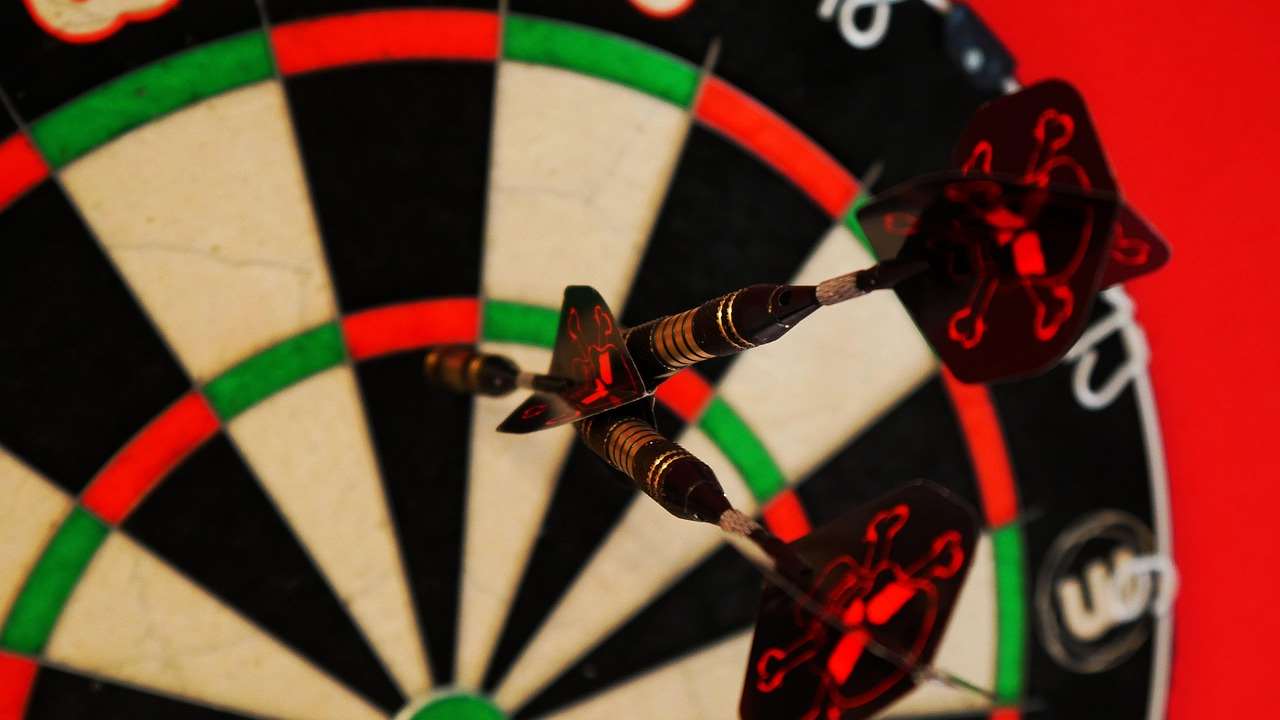A darts business contracts checklist is crucial for protecting your interests and ensuring clarity in any professional dealings within the darts industry. This article will guide you through the essential elements of such a checklist, helping you create legally sound and beneficial agreements. We’ll cover key clauses, negotiation strategies, and potential pitfalls to avoid, empowering you to confidently navigate the world of darts business contracts.
⚠️ Still Using Pen & Paper (or a Chalkboard)?! ⚠️
Step into the future! The Dart Counter App handles all the scoring, suggests checkouts, and tracks your stats automatically. It's easier than you think!
Try the Smart Dart Counter App FREE!Ready for an upgrade? Click above!
Understanding the Importance of a Darts Business Contracts Checklist
Engaging in any business venture within the darts world, from sponsoring a player to organizing a tournament, requires robust contracts. A comprehensive darts business contracts checklist helps to ensure that all critical aspects of the agreement are addressed, mitigating risks and setting clear expectations for all parties involved. Without a proper contract, misunderstandings, disputes, and even legal battles can arise, potentially damaging relationships and costing significant time and money. This is where a carefully constructed checklist becomes invaluable, acting as a roadmap for creating sound and legally defensible agreements.

Why Use a Checklist?
- Ensures Completeness: A checklist helps you remember all the necessary clauses and provisions.
- Reduces Errors: By systematically reviewing each item, you minimize the chance of overlooking critical details.
- Provides Clarity: A well-structured checklist facilitates clear and concise contract drafting.
- Mitigates Risk: Addressing potential issues proactively reduces the likelihood of disputes and legal complications.
- Saves Time and Money: By preventing problems upfront, you avoid costly legal fees and delays.
Key Elements of a Darts Business Contracts Checklist
A robust darts business contracts checklist should cover a wide range of issues depending on the specific nature of the agreement. However, several core elements are generally applicable to most darts-related business transactions. Let’s explore these essential components to ensure your contracts are comprehensive and legally sound.
1. Parties Involved and Scope of Work
Clearly identify all parties involved in the contract, including their full legal names and addresses. The scope of work should be defined with precision, detailing the specific services, obligations, and responsibilities of each party. Ambiguity in this section can lead to disputes later on. For example, if you’re hiring a promoter, define their specific responsibilities for darts tournaments local business impact, including marketing, ticket sales, and venue management.
2. Payment Terms and Schedule
Specify the agreed-upon payment amount, currency, and schedule. Detail any milestones or deliverables that trigger payments. Include clauses addressing late payment penalties, interest charges, and dispute resolution mechanisms related to payment. Be explicit about whether payments are inclusive of taxes and other applicable fees. Consider including performance-based incentives where appropriate.

3. Term and Termination
Define the duration of the contract, including the start and end dates. Outline the conditions under which either party can terminate the agreement, such as breach of contract, insolvency, or change of control. Specify the notice period required for termination and any associated penalties or liabilities. Be sure to address the handling of confidential information and intellectual property upon termination.
4. Intellectual Property Ownership
Clearly state who owns the intellectual property (IP) created or used during the contract period. This is particularly important for sponsorship deals, merchandise agreements, and broadcasting rights. Address issues such as copyright, trademarks, and patents. Define the scope of permitted usage and any restrictions on the use of IP after the contract terminates.
5. Confidentiality and Non-Disclosure
Include a confidentiality clause to protect sensitive information shared between the parties. Define what constitutes confidential information and the obligations of each party to maintain its secrecy. Consider adding a non-disclosure agreement (NDA) as a separate document or as an integral part of the contract, especially if highly sensitive information is involved. This can be relevant to understanding the Business of Darts.
6. Liability and Indemnification
Address the allocation of liability for any damages, losses, or injuries arising from the contract. Include an indemnification clause, where one party agrees to protect the other from certain types of claims or liabilities. Define the scope of indemnification and any limitations on liability. It’s crucial to consult with legal counsel to ensure these clauses are enforceable and adequately protect your interests.
7. Dispute Resolution
Specify the method for resolving disputes that may arise under the contract. Options include negotiation, mediation, arbitration, or litigation. Choose a method that is cost-effective and efficient. Define the governing law and jurisdiction for any legal proceedings. Consider including a clause requiring the parties to attempt mediation or arbitration before resorting to litigation.

8. Force Majeure
Include a force majeure clause, which excuses performance if an unforeseen event beyond the control of either party makes it impossible or impractical to fulfill their obligations. Examples of force majeure events include natural disasters, acts of war, government regulations, and pandemics. Define the specific events that qualify as force majeure and the procedures for notifying the other party.
9. Governing Law and Jurisdiction
Specify the governing law that will be used to interpret the contract and the jurisdiction where any legal proceedings will take place. This ensures clarity and predictability in the event of a dispute. Choose a jurisdiction that is convenient and familiar to both parties.
10. Amendments and Waivers
Include a clause stating that any amendments to the contract must be in writing and signed by both parties. Specify that a waiver of any provision of the contract does not constitute a waiver of any other provision. This prevents unintended consequences and ensures that the contract remains enforceable.
Creating Your Own Darts Business Contracts Checklist
While the elements above provide a solid foundation, your darts business contracts checklist should be tailored to the specific context of your transaction. Here’s how to customize it:

1. Identify Your Specific Needs
Carefully analyze the nature of your business dealing. Are you sponsoring a player, organizing a tournament, licensing merchandise, or providing broadcasting services? Each scenario requires different considerations and contractual provisions. Understand the risks and liabilities associated with your specific activities.
2. Consult Legal Counsel
Engage a qualified attorney specializing in contract law to review your checklist and the resulting contracts. Legal counsel can provide invaluable guidance on ensuring compliance with applicable laws and regulations, protecting your interests, and mitigating potential risks. Don’t rely solely on generic templates; get personalized legal advice.
3. Use Templates as a Starting Point
There are many contract templates available online that can serve as a starting point. However, always customize these templates to fit your specific needs and consult with legal counsel to ensure they are legally sound. Avoid using generic templates without proper review and modification.
4. Regularly Review and Update
Contract law and business practices evolve over time. Regularly review and update your darts business contracts checklist to reflect changes in legislation, industry standards, and your own business needs. This ensures that your contracts remain current and effective.
5. Document Everything
Maintain meticulous records of all communications, negotiations, and contract-related documents. This provides a valuable audit trail in case of disputes. Use a secure document management system to store your contracts and related information. Consider including clauses relevant to how darts events help pubs bars.
Examples of Darts-Specific Contract Scenarios
To further illustrate the importance of a tailored darts business contracts checklist, let’s examine a few specific scenarios within the darts industry:
1. Player Sponsorship Agreements
These agreements should clearly define the scope of the player’s promotional activities, including appearances, endorsements, and social media posts. They should also address issues such as performance targets, exclusivity, and the use of the player’s name and likeness. Detailed clauses regarding payment terms, termination rights, and intellectual property are essential.
2. Tournament Organization Contracts
Contracts for organizing darts tournaments should cover aspects such as venue selection, prize money, broadcasting rights, sponsorship agreements, and liability insurance. They should also address issues such as ticket sales, security, and catering. Thorough planning for the economic benefits hosting darts event should be detailed. Force majeure clauses are particularly important in these agreements, given the potential for unforeseen disruptions.

3. Merchandise Licensing Agreements
Licensing agreements for darts-related merchandise should clearly define the licensed products, the territory of sale, the royalty rates, and the quality control standards. They should also address issues such as trademark protection, infringement, and termination rights. It’s important to conduct thorough due diligence on potential licensees to ensure they have the capacity and resources to produce and market the licensed products effectively.
Conclusion: Protect Your Darts Business with a Solid Contract
A comprehensive darts business contracts checklist is an indispensable tool for safeguarding your interests and ensuring clarity in all your professional dealings within the darts industry. By carefully considering the key elements discussed in this article and tailoring your checklist to your specific needs, you can create legally sound and beneficial agreements. Remember to consult with legal counsel to ensure your contracts are fully compliant with applicable laws and regulations. Take proactive steps to protect your business and foster strong, lasting relationships within the exciting world of darts. Don’t leave anything to chance – build your own tailored checklist and ensure you are legally protected! Contact a legal professional today to begin drafting your comprehensive and effective darts business contracts.
Hi, I’m Dieter, and I created Dartcounter (Dartcounterapp.com). My motivation wasn’t being a darts expert – quite the opposite! When I first started playing, I loved the game but found keeping accurate scores and tracking stats difficult and distracting.
I figured I couldn’t be the only one struggling with this. So, I decided to build a solution: an easy-to-use application that everyone, no matter their experience level, could use to manage scoring effortlessly.
My goal for Dartcounter was simple: let the app handle the numbers – the scoring, the averages, the stats, even checkout suggestions – so players could focus purely on their throw and enjoying the game. It began as a way to solve my own beginner’s problem, and I’m thrilled it has grown into a helpful tool for the wider darts community.